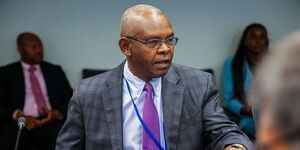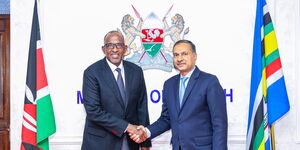The Ethics and Anti-Corruption Commission (EACC) has asked universities to act with speed towards bringing an end to the fake degrees menace that has bedeviled the education sector.
Through a circular issued by the EACC on Tuesday, October 18, the commission called on the leadership of academic institutions to jointly create a long-lasting solution to ensure that all certificates presented are original.
Deputy Chief Executive Officer Abdi Mohamud directed the institutions of higher learning to come up with measures that will bar the duplication of degrees.
"It is, therefore, important that concerted efforts that bring on board all concerned stakeholders be embarked upon, to seek a lasting solution on how these vices can be curbed,
"Where such mechanisms exist, measures should be put in place to strengthen them and make the verification system foolproof," read the circular in part.
EACC proposed that Vice Chancellors and university councils should work with the Commission for University Education to provide verification of documents when called upon.
Mohamud reckoned that the fake degree fiasco posed a threat to the credibility and integrity of the country's education system.
The commission noted that the fraudulent act had also trooped down to the basic education sector and ordered the Kenya National Examination Council (KNEC) to curb the perpetrators.
Fake academic testimonials such as KCSE certificates were used to qualify underwhelming Kenyans for university programs whose ripple effect is felt in employment.
Documentation presented by individuals seeking appointment in the public and private sector deteriorates the service rendered to the citizens owing to underqualified personnel.
Academic papers top of the list of requirements by employees from job seekers. On October 18, the National Assembly Vetting Committee questioned Cabinet Secretary nominees on their scholarly merits.
In the public service sector, academic qualifications vary from o-level certification to Master's degrees depending on the office in question.












